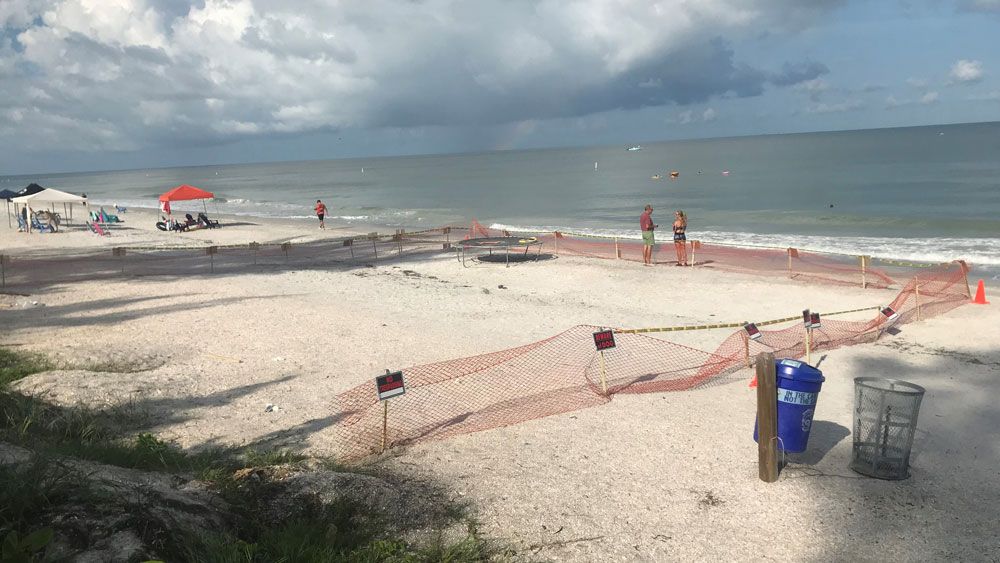TALLAHASSEE -- Florida Governor Rick Scott issued an executive order Thursday afternoon, seeking to clear confusion caused by a new state law that seems to permit residents with beachfront property to restrict access to the beach.
RELATED:
- New Florida law reignites beach access fight in Panhandle
- New beach access laws effective today
- New Florida law lets beachfront owners make beach property private
During the last legislative session in Tallahassee, lawmakers passed and Gov. Scott signed into law HB 631, which gave beachfront property owners the right to declare the portion of their property on the beach up to the high tide water line private.
Since the law went into effect July 1, incidents have arisen in coastal cities and counties around the state involving property owners, beach goers and local law enforcement trying to correctly interpret the law.
The order from Gov. Scott issued on July 12 creates a moratorium on any new state legislation which could restrict beach access.
"Last session, HB 631 was passed with overwhelming support from both Democrats and Republicans. Unfortunately, the legislation has now created considerable confusion and some have even interpreted it as restricting beach access," Scott said in a statement. "I’m committed to keeping our beaches open to the public and this executive order makes this commitment clear."
The order also calls for the state's Department of Environmental Protection to act as an advocate for beach-goers' access to public beaches. Scott's order directs the DEP to coordinate with local governments to address public concerns about beach access and ensure the public's right to that access is protected.
Indian Rocks Beach was one community where angry beachgoers clashed with a few property owners over the law, including one who placed temporary fencing around the portion of the beach that went up to his property. Since then, city government has already taken steps to protect the municipality's 2 1/2 miles of beachfront from privatization, according to City Manager Gregg Mims.
"Our city commission and mayor had adopted an ordinance about three weeks ago that really put in place the public's legal rights to maintain access to the beach," Mims said. "But anything the governor can do and the state legislature can do to really clean this up, we welcome it."
Reaction to Scott's order from his critics around the state came swiftly Thursday. Gubernatorial candidate Philip Levine issued the following statement in reference to the order:
“Governor Rick Scott signed a terrible bill into law that restricts public access to beaches. Now, after Floridians were rightfully angry, he has buyer’s remorse. Voters see this for what it is—an election-year political charade. Restricting access to our beaches is the wrong move, it goes against a fundamental right of all Floridians and could hurt our tourism economy. As Governor, I'll fight to ensure our public beaches stay public, every year, not just during an election.”
The state's Democratic Party, meanwhile, had this to say:
"While it is welcome news that Floridians could now be able to access their beaches without fear of prosecution, this is yet another example of how Rick Scott will say and do anything to get elected," said party spokesperson Nate Evans. "Scott literally just signed the law that allowed residents to restrict beach access. These election year actions remind Floridians that Rick Scott has spent the past seven years as governor looking out for himself at the expense of Florida."
To read the full text of Gov. Scott's order, click HERE.



